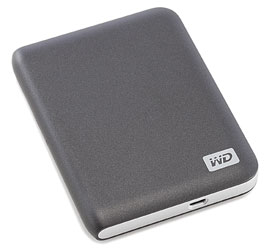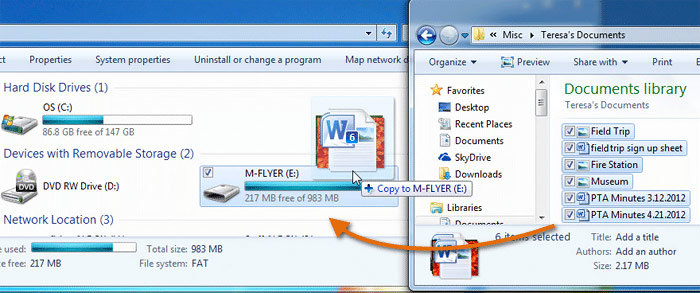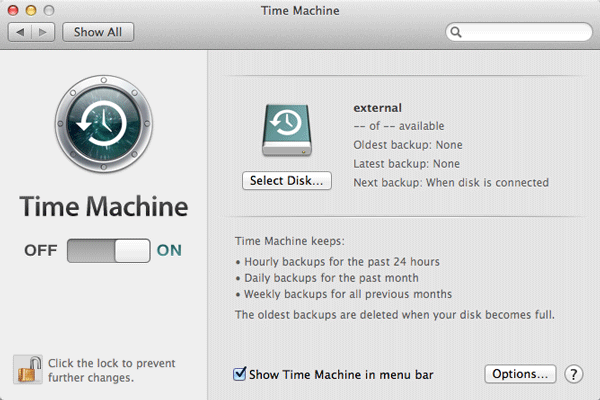Tech Savvy Tips and Tricks
Backing Up Your Files
Backing up your files

As we become more dependent on technology to help accomplish our everyday tasks, we tend to forget how easily the information stored on our computers can be lost. Imagine what would happen if your computer was misplaced, damaged, or even stolen. Would you lose any important music, documents, photos, or other files?
While it may be possible to repair or recover your computer, the files could be lost forever. You can protect your files from accidental loss by creating a backup on an external hard drive or online backup service. Should anything happen to your computer, you can rest easy knowing your files are still safe and secure.
External hard drives
 An external hard drive
An external hard driveOne of the easiest ways to back up your files is to copy them to an external hard drive. You'll need to purchase an external drive to get started. Western Digital, Lenovo and Seagate produce some of the most popular external hard drives. Conduct some research on which product best suits your storage needs, or ask a computer sales representative for recommendations.
Keep in mind that an external hard drive is subject to the same risks as your computer, including fire, theft, and accidental damage. Thus, it is important to keep your drive in a secure location (away from your computer) when not in use—we recommend a small fireproof safe for greater protection.
Backing up files manually
If you only want to back up certain files, you can copy them directly to an external hard drive. This is an easy way to protect your most important files and folders, like certain documents or an important project.
- To back up a file or folder, connect the external hard drive to your computer, then simply click and drag the desired items to the external drive. A copy will now exist on both the computer and the external drive.
 Copying files to an external hard drive
Copying files to an external hard driveBacking up files automatically
While it's easy to copy files and folders to an external hard drive, it's also easy to forget. You never know when you might need to access your files, so you'll want to back them up regularly to make sure you always have a copy of the most recent version. To simplify the process, most computers can automatically back up certain files or even your entire hard drive.
- Using Windows
Windows Backup (also known as File History in Windows 8) allows you to create automatic copies of certain files or folders. You can also use Windows Backup to save a system image, which creates a backup of your entire hard drive, including your files and any applications you have installed. Check out Windows Backup and Restore from Microsoft to learn more. - Using Mac OS X
When active, Time Machine automatically creates a backup of your entire hard drive, including your files and applications. If something goes wrong, it's easy to restore your computer to a previous date and pick up right where you left off. Visit Mac 101: Time Machine from Apple to learn more.
 Configuring Time Machine on a Mac
Configuring Time Machine on a MacIf you choose to back up your entire hard drive, the initial backup could take several hours. Select a time when you do not need to access your computer—overnight usually works best. Additional backups should be scheduled on a regular basis, but these will usually take less time because the drive will only need to copy your most recent files.






